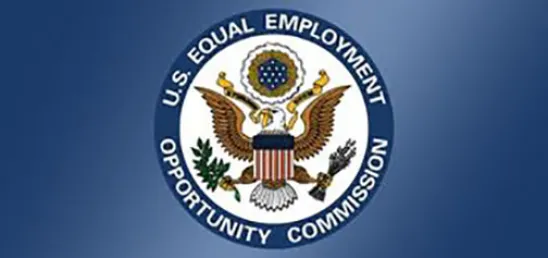On January 14, 2021, the U.S. Equal Employment Opportunity Commission (“EEOC” or “Commission”) issued a Commission Opinion Letter concluding that the group termination program disclosures mandated by the Age Discrimination in Employment Act of 1967 (“ADEA”), as amended by the Older Workers Benefit Protection Act (“OWBPA”), are not required to include employees working outside the United States who are not U.S. citizens but who otherwise might be considered to be part of the termination program’s “decisional unit.”
Relevant ADEA and OWBPA Provisions
When conducting a group termination program that offers employees severance in exchange for a release of potential federal age discrimination claims, the OWBPA imposes specific requirements to obtain a valid and enforceable release of ADEA claims.
Specifically, the OWBPA mandates that an ADEA waiver must be “knowing and voluntary.” 29 U.S.C. § 626(f). In the group termination context, the employer is required to provide covered employees (those age 40 and over), in writing and in a manner calculated to be understood by an average employee, the following information:
-
any class, unit, or group of individuals covered by such program;
-
any eligibility factors for such program;
-
any time limits applicable to such program;
-
the job titles and ages of all individuals eligible or selected for the program; and
-
the ages of all individuals in the same job classification or organizational unit who are not eligible or selected for the program.
The aforementioned “class, unit, or group” of individuals eligible or selected for the program constitute the “decisional unit.” The “decisional unit” comprises the portion of the employer’s organizational structure from which the employer chose the persons who would be offered consideration for signing the waiver.
Failure to comply with this requirement, or to properly prepare the OWBPA disclosure, can invalidate the ADEA waiver in the release of claims, even if the employee has received the severance pay and benefits provided in exchange for the release.
The Commission’s Conclusion
There has been uncertainty concerning whether non-U.S. citizens working outside the United States need to be included in the decisional unit for OWBPA disclosure purposes. The Commission concluded that employers are not required to include in their OWBPA disclosures employees working outside the United States who are not U.S. citizens. Primarily, this is because such individuals are not “employees” for the purposes of the ADEA. The ADEA protects only workers in the United States, regardless of citizenship status, and U.S. citizens working outside the United States for American employers (or foreign firms controlled by American employers), but it does not protect non-U.S. citizens working outside the United States. 29 U.S.C. § 630(f).
The EEOC noted that the OWBPA serves to ensure that covered employees are provided sufficient information so as to properly evaluate exit incentives or termination programs before waiving their rights under the ADEA. The Commission stated that this objective may be frustrated if non-covered employees were included in OWBPA disclosures, noting that doing so might present a misleading picture, thereby masking potentially unlawful discrimination.
Additionally, the EEOC concluded it would be inappropriate to require inclusion of non-U.S. citizens working overseas in the OWBPA disclosures because foreign legal requirements often require differing eligibility or selection criteria, and separation benefits, for international employees.
Nevertheless, there may be circumstances where an employer determines that the appropriate “decisional unit” legitimately encompasses both domestic and international U.S. citizen, and non-U.S. citizen, international employees. In some cases, there may be U.S. citizen and non-U.S. citizen employees working at the same international location and considered as part of the same termination program. Although the Commission Opinion Letter does not directly address such situations, it appears to conclude that inclusion of the non-U.S. citizen international employees in the OWBPA disclosure in such circumstances is not required. Here, the Commission states that “[e]mployers who voluntarily elect to include in their OWBPA disclosures information regarding non-covered employees must ensure that in doing so they do not mislead covered employees in violation of the ADEA and the Commission’s regulations.”
What Employers Should Do Now
The Commission Opinion Letter provides helpful guidance in clarifying that inclusion of non-U.S. citizen international employees in the OWBPA disclosure is not required in order for the disclosure to be correctly and accurately prepared and, thus, obtain valid, enforceable ADEA waivers from employees in a group termination program. Nevertheless, it remains critical that employers pay careful attention and thought to the composition, scope, and accuracy of the information in OWBPA disclosures, particularly in defining the scope of the “decisional unit” and when evaluating whether the decisional unit may encompass both U.S. citizen and non-U.S. citizen employees. This requires considered and knowledgeable application of the concepts and requirements articulated in the ADEA/OWBPA and its regulations, applicable case law, and EEOC guidance, to the particulars of the termination program at issue.
Although the Commission Opinion Letter concludes that employers are not required to include non-U.S. citizen international employees in the OWBPA disclosure, employers must still evaluate whether a group termination program that will impact both U.S. citizen and non-U.S. citizen international employees appropriately includes the non-U.S. citizen employees within the “decisional unit.” In making this determination, employers should consider whether voluntarily including non-U.S. citizen international employees in—or excluding them from—the OWBPA disclosure may create an argument that doing so would be misleading to covered employees, in violation of the ADEA and the Commission’s regulations.





 />i
/>i

